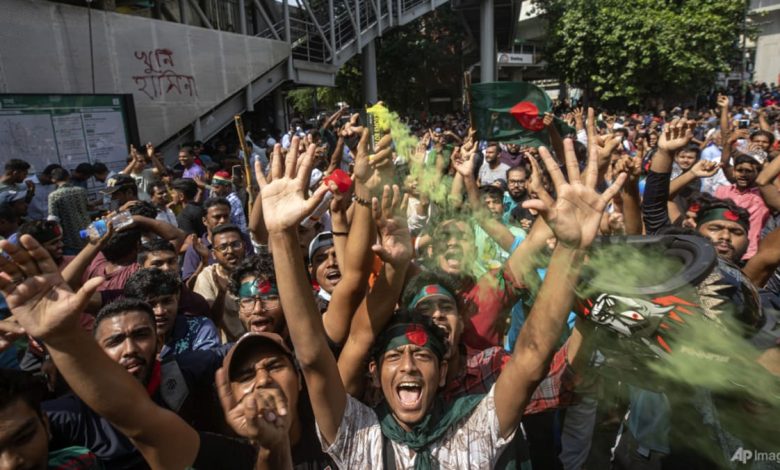Commentary: People power has won in Bangladesh, for now

The good times didn’t last. A combination of the pandemic and financial mismanagement took their toll on the emerging economy, and two years ago it reached out to the International Monetary Fund and other international lenders to prevent collapse.
It’s the third country in the region, after Sri Lanka and Pakistan, forced to knock on the International Monetary Fund’s (IMF) door in recent times. All the instability is adding to uncertainty in South Asia.
Financial health was not the only issue. The political protests over the last month have been a lightning rod for a wide range of problems from acute unemployment to a flagging private sector, Lutfey Siddiqi, visiting professor at the London School of Economics’ foreign policy think tank, told me.
“There’s also anger at the sheer lack of empathy and condescension with which Hasina has responded to those worries,” he said.
DISILLUSIONMENT WITH HASINA’S GOVERNMENT
The prime minister’s ruling Awami League has most recently been in power since 2009, but elections have been regularly boycotted by the opposition, and widely condemned as being insufficiently free and fair.
She capitalised on a storied legacy as the daughter of Sheikh Mujibur Rahman, Bangladesh’s founding father, going on to become the world’s longest-serving female leader, but in recent years has clamped down on press freedom and quashed public debate. Economic mismanagement has only made grievances worse.





